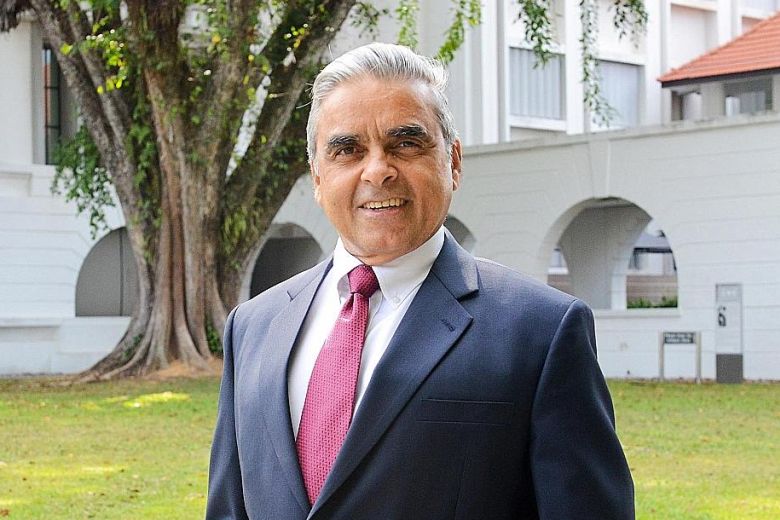In his keynote address H.E. Professor Kishore Mahbubani, Distinguished Fellow, Asia Research Institute and Founding Dean of the Lee Kuan Yew School of Public Policy at the National University of Singapore, predicted a shift in economic power from the West to Asia in the first half of the 21st Century, with the second half moving into the Afro-Asian Century. The Fourth edition of the Ndiaye Lecture was organised at a time of major tectonic shifts around the world and the choice of the main theme “Africa and the Remaking of the New World Order” reflected these developments at the global level.
“From the year one to 1820, China and India were the two largest economies of the world. It is only in the last 200 years that Europe took off, followed by the United States. In contrast to the plight of the bottom fifty percent in the United States today, the bottom fifty percent in China have had their best forty years of socio-economic advancement in four thousand years of Chinese history,” said Professor Mahbubani, a world-renowned geopolitical thinker and veteran diplomat.
“In the 1990’s, China decided to become more pragmatic and the West decided to focus on ideology,” stated Professor Mahbubani. Four decades later, pragmatism which emphasises the adoption of development models and solutions with a proven track record, enabled China to overtake the US as the largest economy in the world in purchasing power parity terms after a successful demographic transition.
Professor Mahbubani predicted that the second half of the 21st century will be the Afro-Asian century, especially with the African population projected to double in the coming decades. Mainstreaming the culture of Meritocracy, Pragmatism and Honesty (MPH), which helped achieve successful demographic transitions in China, will play the same role in the process of African Renaissance and the return of the continent to the global centre stage. The MPH structure also has the potential to stem endemic corruption which in the view of Professor Mahbubani has been the single most important impediment to development over the years. Professor Mahbubani exhorted future generations of Africans to aspire to be as honest as Mahatma Gandhi and Nelson Mandela.
Earlier, Professor Benedict Oramah, the President and Chairman of the Board of Directors of Afreximbank, underlined the visionary spirit of Dr Babacar Ndiaye and his development impact. “Afreximbank which was created in response to the sovereign debt crisis of the 1980’s has become the African crisis management institution par excellence,” stated Professor Oramah.
The event also featured a tribute to Dr Ndiaye from his former colleague, Ms. Arunma Oteh, who was African Development Bank Vice President for Corporate Services, World Bank’s Treasurer and is currently at the Said Business School at University of Oxford as an Academic in Residence. She gave a moving tribute about Dr Ndiaye’s life as her mentor and shared his vision of Africa as an economic powerhouse.
The poet Dike Chukwumerije gave a rousing rendition of African history, highlighting the exceptional contribution of Africa to the world and paying homage to systematically organized civilizations of Africa’s past. Stressing the importance of history in the survival of civilizations he invited Africans to treasure and preserve their history. “In our African souls we carry always our ability to rise,” Mr Chukwumerije stated in his closing statement.
After thanking the participants and speakers for their exceptional contribution to the fourth edition of Ndiaye Lecture in his closing remarks, Dr Hippolyte Fofack, Chief Economist at Afreximbank, observed that “the rise of Africa in the second half of the 21st century will take the world back to the beginning of history,” stressing the role played by Africa as the cradle of civilisation.
Participants also enjoyed a musical performance by the virtuoso Ms Sona Jobarteh. The Babacar Ndiaye Lecture was held as a virtual event – due to the Covid-19 pandemic. It attracted more than 2000 attendees.


